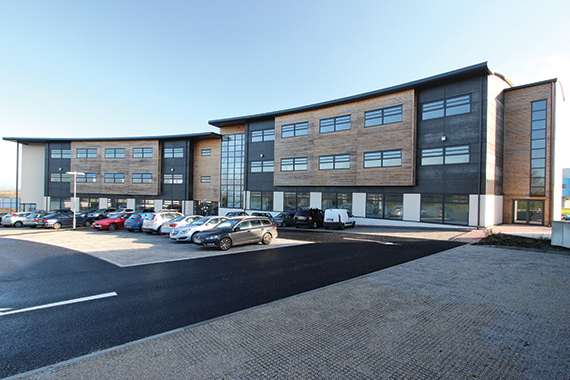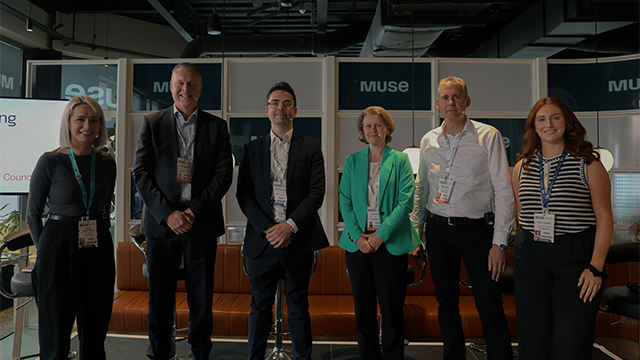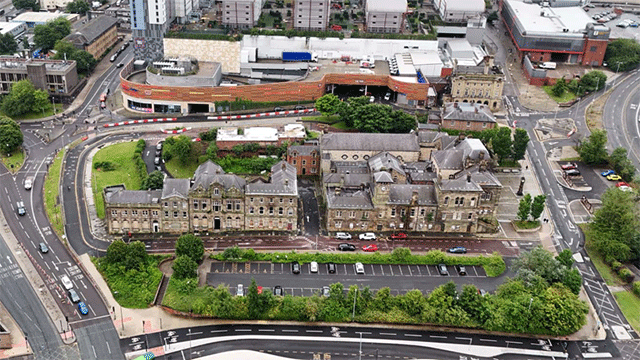 When the world’s first commercial deep space mission lifts off in 2019, mission control will be at Goonhilly, on Cornwall’s Lizard peninsula. This really is rocket science, with the area forming part of an enterprise zone to establish a centre of excellence for satellite and digital communication technology.
When the world’s first commercial deep space mission lifts off in 2019, mission control will be at Goonhilly, on Cornwall’s Lizard peninsula. This really is rocket science, with the area forming part of an enterprise zone to establish a centre of excellence for satellite and digital communication technology.
This remote location is no stranger to innovation, it distributed the first transatlantic TV signals in 1962 and is five minutes from Mullion, where Marconi transmitted the first wireless signal in 1901. This latest milestone is part of a modern technological revolution that has seen Cornwall’s digital economy grow by 151% between 2010 and 2014, second only to Southampton, according to innovation foundation Nesta, in its 2016 Tech Nation report. Cornwall’s digital turnover grew 32% faster than the rest of the UK, employs 2,200 people and generates £32m.
This digital expansion is built upon Cornwall’s superfast broadband infrastructure, which was developed largely with European funding; the county has received grants and matched investment of about £2.5bn since the millennium. To complement this, there has been huge investment in education and a push to develop human as well as virtual connectivity.
Belinda Waldock, co-founder of Software Cornwall, an umbrella body bringing the growing band of tech companies together, says connectivity means the county overcomes several of the disadvantages of a rural location. “Many tech companies can be based anywhere in the world, so why not here, with perfect work/life balance and superfast connectivity?” Waldock helped establish Agile on the Beach Falmouth, one of more than 100 worldwide Agile conferences, which was voted third most popular location by the global software community.
To feed and fuel the tech sector, Falmouth University, Cornwall College and Plymouth and Exeter universities have created courses in collaboration with digital firms and facilitated state-of-the-art research and business support facilities. Falmouth, for instance, runs some of Europe’s most innovative videogames courses, and has seen the rise of the likes of Stormtide, which develops space exploration games in conjunction with Goonhilly. If funding is successful for its proposed Launchpad scheme, about 120 jobs and many new companies are expected to evolve over the next three years.
Among the key components in tech-development are Cornwall Innovation’s three centres, which align local knowledge with commercial activity. Centres’ director Bernard Curren, says: “We work with companies at the early ideas stage, providing workplaces at the risky end of the market that the private sector prefers not touch.”
The centres provide fully serviced workspace at rents of £16 to £18 per sq ft on flexible contracts. About 40 businesses in each centre operate for up to four years before moving on. Curren says: “They might start as one-man bands then leave 40 strong.”
But that is a major issue for Cornwall’s property market, because follow-on space is almost non-existent. Waldock says: “I could reel off a dozen companies that would take the right size and quality space now if you had it.”
 There are examples of supply meeting demand: Practical Developments’ speculative 42,000 sq ft Gateway Business Centre (above), delivered in 2015, is nearly fully let to tech companies. Vickery Holman’s Alan Treloar, joint agent with Redgrave Commercial, says rents are at around £12 per sq ft with leases as flexible as possible. About half of the centre’s £13.5m development costs were met through European funding.
There are examples of supply meeting demand: Practical Developments’ speculative 42,000 sq ft Gateway Business Centre (above), delivered in 2015, is nearly fully let to tech companies. Vickery Holman’s Alan Treloar, joint agent with Redgrave Commercial, says rents are at around £12 per sq ft with leases as flexible as possible. About half of the centre’s £13.5m development costs were met through European funding.
Gateway’s success is put down to the developer’s digital targeting. Sandra Rothwell, chief executive of Cornwall and Isles of Scilly LEP says: “The developer spoke to customers and gave them exactly what they wanted.” Curren says Pool Innovation Centre, which located close to the Gateway Business Centre, worked with Practical Developments to ensure the space was to market requirements. This led to better rents being achieved.
Miller Commercial’s Tim Smith, says that one reason more developments have not emerged is lack of market evidence. “We haven’t seen enough weight of demand to test the market. The incubator and innovation space is effectively off-market and many grant-funded schemes are specific to one sector so there is no open competition.” Smith also feels the incubator experience is too good for many companies to leave, meaning, as he puts it: “The private sector just cannot compete.”
For now, if a digital company wants sizeable space its only viable option is to move to Devon, to the 64-acre Exeter Science Park, a joint venture between the city’s university, council, the Met Office – which sites part of its new supercomputer there – and others. It offers flexible workspace at around £19.50 per sq ft and is three-quarters full. Paul Musgrove, of agent Lambert Smith Hampton, says: “The South West is very successful at growing small businesses. But these companies need grow-on space and clustering, which is not available elsewhere in the region.”
For the future, the plan is for Cornwall to provide its own space to retain and attract digital companies. Although Brexit could prove an impediment for an area so reliant on gap-funding, the LEP, says Rothwell, is hoping the chancellor’s Autumn Statement will approve its bid for £50m specifically to fund grow-on space. Some relief for the space issue will also be provided by Fibre Park, a super-sized innovation centre that should come to market in 2019 (see box).
Rothwell says the next stage, regardless of Brexit, is to ensure momentum is maintained and connectivity evolves with the likes of hyper-fast broadband, 5G and satellite technology. It is also necessary for the physical infrastructure to keep up with the virtual. “We need to provide affordable housing to attract people and retain graduates, improve the A30 [main road], the airport and the trains. We need to work with all involved to continue the evolution.”
The micro hub solution
The micro-hub concept offers potential to fill offices that struggle to find single occupants. In the far south west, where about one in five work from home, this could be the way forward.
LEP chief executive Rothwell says she would like to see a network of hubs throughout Cornwall supporting micro-businesses. Software Cornwall’s Waldock thinks such a network would gain support from existing employers: “A series of hubs from Bude to Penzance would allow the software firms to remain in their offices whilst some staff work remotely and visit head-office when necessary,” she says.
In Penzance, Tim Dwelly created WorkBox, which provides desk space, offices, meeting rooms and excellent broadband for a variety of users. Established with the assistance of European funding, Dwelly reckons it was the first of its kind in the UK.
The 100 members pay from £50 to £400 per month for ad hoc use of the 65 workspaces. A not untypical member is hydrographic surveyor Gabriel Walton, who undertakes work for Adus DeepOcean, St Andrews in Scotland, whose digital imaging was instrumental in the salvaging of Costa Concordia.
The success of WorkBox has led to the creation of TheWorkBox: Truro, due to open next summer for around 40 members sharing 35 desks. Dwelly says his company paid £200,000 for the Grade II-listed Ferris Town building and has spent the same again on refurbishment.
Fibre Park, Camborne
Toby Parkins, director of software company Headforwards, is spearheading the push for Fibre Park, a £35m development close to the A30, alongside Camborne College. The 120,000 sq ft offices and 35,000 sq ft education, leisure, community and conference space will offer internet speeds of 100Gbs and host 1,200 jobs, 600 of which will be new. Parkins says two-thirds of the space is already spoken for.
Parkins says: “This is a knowledge-based industry, so we harnessed that knowledge – everything is based around their critical needs.”
Rents will be akin to the £18 per sq ft of Pool Innovation Centre where Headforwards is based. Parkins says “Occupiers will pay a premium for added value.” Fibre Park will go for planning permission in six months and then attain pre-let guarantees and confirmed costings.











